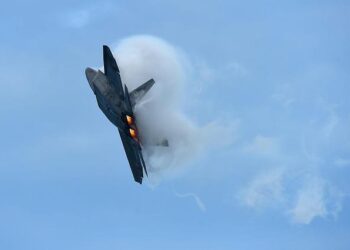Poland is set to strengthen its defense capabilities through a new partnership with UK-based defense giant BAE Systems, aiming to significantly increase munitions production. The collaboration comes amid growing regional security concerns and reflects Warsaw’s commitment to bolstering its military readiness. This strategic alliance is expected to enhance Poland’s domestic defense industry while reinforcing cooperation between the two nations in defense technology and manufacturing.
Poland Enhances Defence Capabilities Through Strategic Partnership with BAE Systems
Poland is taking decisive steps to bolster its defence infrastructure by joining forces with BAE Systems, one of the United Kingdom’s leading defence contractors. This strategic collaboration focuses on significantly increasing the production capacity of advanced munitions within Polish borders, ensuring faster and more reliable supply chains amid rising regional security challenges. The partnership aims to integrate cutting-edge manufacturing technologies and local expertise, positioning Poland as a key hub for munitions production in Central Europe.
Key aspects of the collaboration include:
- Technology transfer and skill development for Polish engineers and technicians
- Establishment of new production lines to meet domestic and NATO requirements
- Joint research initiatives to innovate next-generation munitions
The initiative not only strengthens Poland’s defence industry but also creates new job opportunities while reinforcing military readiness. Below is an overview of the expected project outcomes over the next five years:
| Project Phase | Expected Deliverables | Timeline |
|---|---|---|
| Phase 1 | Facility upgrades and training programs | 2024-2025 |
| Phase 2 | Launch of new production lines | 2025-2027 |
| Phase 3 | Full-scale operational capacity | 2027-2029 |
Details of the Joint Munitions Production Initiative and Expected Industrial Impact
The joint initiative between Poland and BAE Systems marks a significant advancement in munitions production capabilities within Europe. Under this collaborative effort, the focus will be on establishing state-of-the-art manufacturing facilities across several Polish regions, aiming to streamline the production process of a wide range of munitions. This partnership leverages BAE Systems’ cutting-edge technology and Poland’s strategic position to enhance domestic defense manufacturing and reduce reliance on imports. Key components of this initiative include:
- Development of precision-guided munitions with advanced targeting systems.
- Implementation of automated assembly lines to increase output efficiency.
- Training programs to cultivate a highly skilled workforce specialized in modern defense technology.
- Environmental safeguards to ensure sustainable industrial growth.
The industrial impact is expected to be profound, offering both economic and strategic benefits. Poland’s defense sector will experience a boost in employment opportunities, fostering innovation within local supply chains and small to medium enterprises. Below is a concise projection of the expected industrial benefits over the next five years, highlighting key performance indicators in production capacity, economic growth, and workforce development:
| Impact Area | 2025 Projection | 2027 Projection |
|---|---|---|
| Annual Munitions Output | 500,000 units | 1,200,000 units |
| Employment Growth | 1,200 jobs | 3,500 jobs |
| Local Supplier Engagement | 50 SMEs | 150 SMEs |
Recommendations for Strengthening Defence Collaboration and Supply Chain Resilience
To maximize the impact of the Poland-BAE Systems partnership, it is essential to prioritize integrated communication channels between all stakeholders. Streamlining information flow will enable real-time tracking of production milestones and early identification of supply chain vulnerabilities. Additionally, fostering joint research and development initiatives can accelerate innovation, ensuring that munitions meet evolving operational requirements.
Key steps include:
- Establishing cross-border task forces with clear mandates
- Implementing advanced digital supply chain management tools
- Regularly conducting risk assessments and contingency planning
Building supply chain resilience also depends on diversifying component sourcing and investing in local manufacturing capabilities. Prioritizing flexibility and redundancy will help mitigate disruptions caused by geopolitical tensions or unexpected demand spikes. A focused approach on workforce training tailored to modern production technologies can further strengthen operational capacity and ensure sustainable growth within the defence sector.
| Strategic Priority | Action | Expected Outcome |
|---|---|---|
| Communication | Integrated digital platforms | Enhanced coordination |
| Supply Chain | Diversified sourcing | Reduced disruption risk |
| Innovation | Joint R&D projects | Faster technological upgrades |
| Workforce | Specialized training programs | Higher productivity |
In Conclusion
As Poland moves forward with its partnership with BAE Systems, the collaboration marks a significant step in strengthening the country’s defense capabilities and supply chain resilience. This joint effort underscores a broader trend of international cooperation in the defense sector amid evolving security dynamics in Europe. Observers will be watching closely to see how this alliance impacts regional defense readiness and industrial growth in the coming years.
















